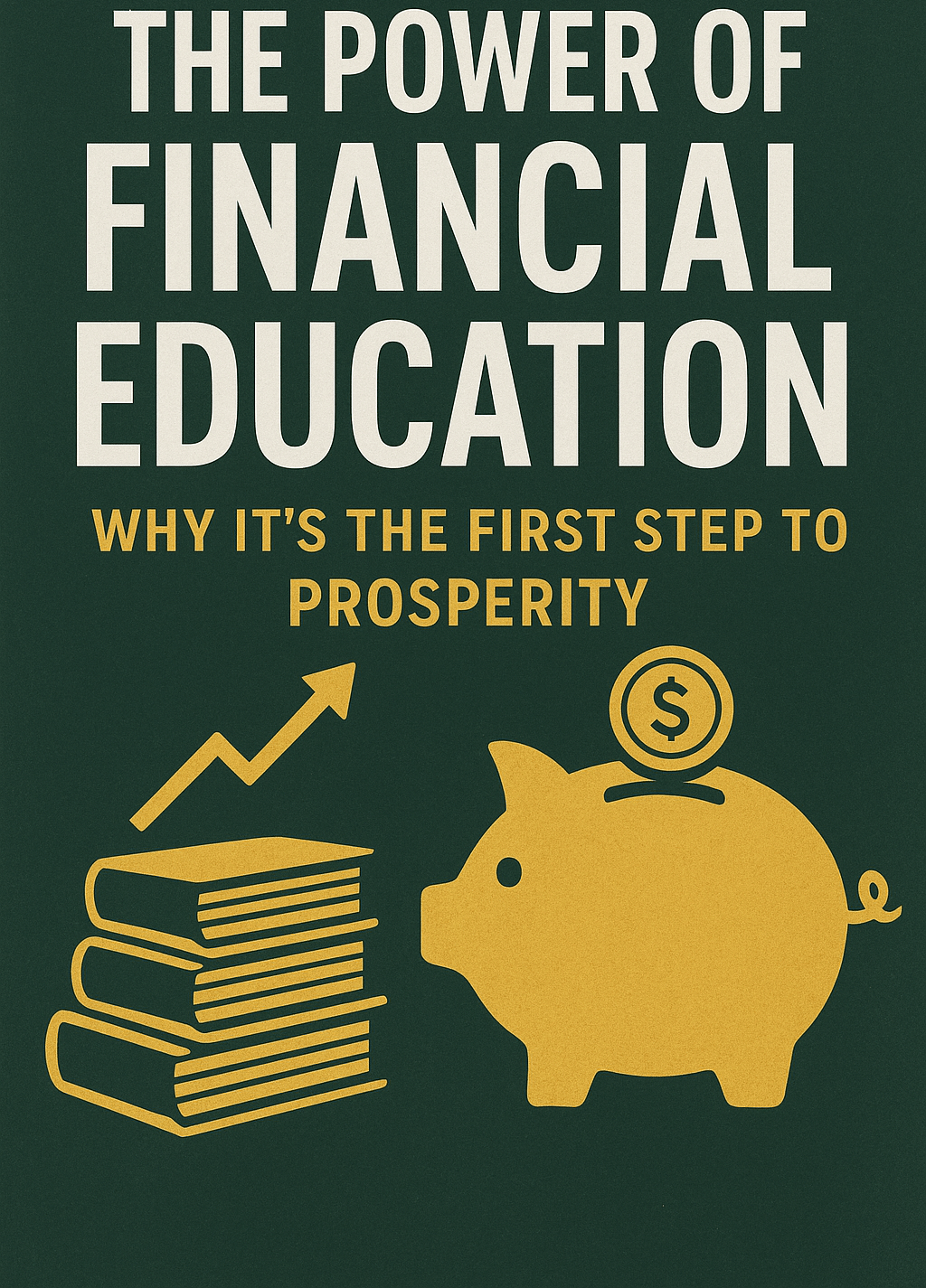The Power of Financial Education: Why It’s the First Step to Prosperity
This article explores the importance of financial planning in building long-term stability and achieving personal goals. Written in simple and accessible language, it explains the key steps anyone can take — from budgeting and saving to debt management and investing — to create a solid financial foundation. Perfect for beginners and those looking to strengthen their money habits, this guide shows that financial education is the key to financial freedom.
8/21/20253 min read


When most people think about improving their financial lives, the first idea that comes to mind is earning more money. While increasing income can certainly make things easier, it is not a guarantee of stability or prosperity. History is full of examples of athletes, artists, and even lottery winners who earned millions but ended up bankrupt because they lacked financial education. On the other hand, many ordinary people with modest salaries were able to build wealth and security through knowledge, discipline, and smart decisions.
What Exactly Is Financial Education?
Financial education is more than just learning how to save money. It’s about developing the ability to understand how money flows, how to manage it, and how to make it work for you. This knowledge involves concepts like budgeting, investing, credit management, debt control, and planning for the future. With financial education, people can make better choices—whether it’s deciding between renting or buying a house, choosing the right investment, or knowing how much to spend on non-essential items.
Why Is It So Important?
Without financial education, even a good income can vanish quickly. Inflation, high-interest debts, and unplanned expenses can drain resources faster than we imagine. On the other hand, someone with financial knowledge learns how to:
Budget effectively – knowing exactly where money goes every month.
Build an emergency fund – avoiding financial chaos when unexpected situations happen.
Invest with confidence – making money grow instead of letting it lose value over time.
Use credit wisely – understanding interest rates, payment terms, and avoiding unnecessary loans.
Plan long-term goals – such as retirement, home ownership, or even traveling the world.
This shows that financial education is not only about today but also about tomorrow.
Changing the Mindset About Money
One of the greatest benefits of financial education is that it changes how people see money. Instead of seeing money as something that comes and goes, education helps people view it as a tool to create opportunities, freedom, and security. For example, when someone learns about the power of compound interest, saving and investing become more exciting, because they realize that small contributions can turn into large amounts over time.
Another mindset shift is learning to live below your means—not in a restrictive way, but with balance. Financially educated people understand that wealth is not about spending everything you earn, but about keeping a portion of it to build a solid future.
Financial Education as a Tool for Freedom
Ultimately, financial education gives people freedom—the freedom to choose where to work, where to live, how to spend their time, and how to design their future. A person without control of their finances is often stuck in jobs they dislike or dependent on debt. But with knowledge, planning, and discipline, money stops being a source of stress and becomes a tool to achieve dreams.
How to Start Learning Today
The best part is that financial education is not complicated or exclusive. Anyone can start learning, regardless of their age or income. Some simple steps include:
Track your expenses – Write down everything you spend in a month. This shows where your money really goes.
Set clear goals – Saving is easier when you know exactly what you’re saving for.
Build an emergency fund – Start with a small goal, like $500, and increase it over time.
Learn about investments – Stocks, bonds, real estate, or even index funds can help money grow.
Avoid unnecessary debt – Not all credit is bad, but high-interest debt can destroy financial stability.
Keep learning – Books, blogs, podcasts, and financial courses are accessible to anyone willing to grow.
Final Thoughts
Financial education is not about becoming a millionaire overnight. It is about gaining control, peace of mind, and the ability to make decisions that lead to prosperity. By learning and applying basic financial principles, anyone can transform their life — whether they earn little or a lot.
The truth is simple: money without knowledge disappears, but knowledge applied to money creates opportunities, security, and freedom. That’s why financial education should always be the first step on the journey to prosperity.